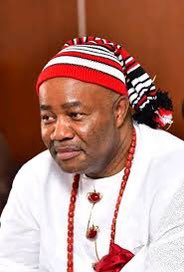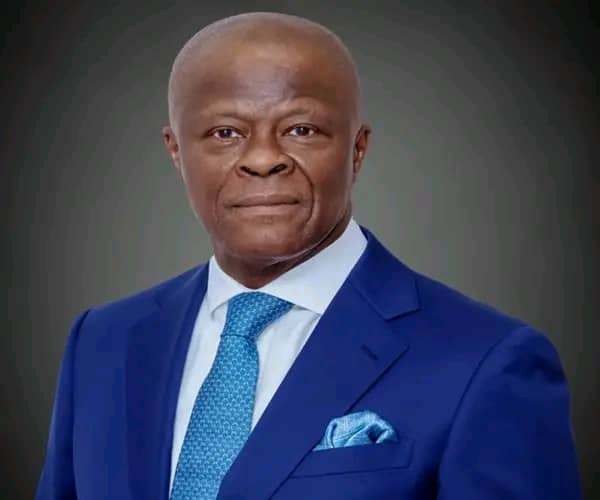“The first law of nature is self-preservation. Cut off that which may harm you. But if it is worth preserving, and is meaningful, nourish it and have no regrets. Ultimately, this is true living and love of self…from within.” ― T.F. Hodge.
“The people that do us most harm are the people who shield us from reality” –Agatha Christie.
Nigeria manifests every index of an ailing state. By every standard of assessment, the country is distressed and at the lowest ebb of its socio-economic and political development.
And though this complicated circumstance is self-inflicted, the most culpable of all the factors are the elites. These are the compatriots who by priviledged exposures and opportunities acquired certain advantages over the rest. They lack the numbers yet they shape the outcomes in all aspects of our national life, notably politics and economy. This they achieve sequel to their unbridled access to the media and other state resources.
Majorly, they cut across every segment of the economy and politics. The arrowhead of their agenda is to always remain relevant and influential to keep the masses on the line. In this ideology, they are united except when, once in a while, their partisan interests clash which mostly do not last long.
The two quotes above aptly describe their guiding philosophy and strategy. To achieve and sustain “self-preservation”, they must constantly “shield us from reality”.
Hence, they wilfully and skilfully take advantage of the vulnerable to advance their agenda. They exploit the desperation of the poor and ignorant to propagate divisive tendencies.
Once again, they know the truth but choose to ignore it. They have the solutions but deliberately compound the problems. They preach the truth only when their interests conflict. Then, they resort to sermonizing and telling the people things that soothe the ears even when all the while they have been acting the opposite.
For example and as highlighted earlier, Nigeria’s present predicament is worrisome to every well-meaning citizen. Even the government of the day is agitated. The masses are increasingly overwhelmed by despair. And of course, the elites are not spared. How can they be, when despite their relative advantages, they have less-privileged dependants, neighbours and associates around them?
And so except for ignorance or mischief, Nigeria’s economic woes predate the present national assembly. The high cost of governance has since been identified as the major opening for economic wastage in the country. Manifesting as over-bloated public service, poor budgetary system and weak institutions which are all being driven by corruption, these cumulatively weigh down on the economy and derail every effort at revitalization. Next to them are also the effects of the military incursion in Nigeria’s politics before 1999. That inglorious era, just like the civil war, eroded every semblance of democratic norms and tenets as well as greatly undermined senses of nationalism and patriotism among the citizenry. These have constituted a clog in the wheels of Nigeria’s journey to nationhood.
However, successive federal governments, including legislatures, have initiated and implemented a series of interventions to stem the tide. There have been governance policy thrusts and legislative agenda serially targeted at the economy. There have been laws made and agencies established with the sole aim of rescuing, stabilizing and growing the economy and politics of the country.
But in all these, no specific attempt has even been made in the area of holistic reduction of the cost of governance. The salaries and allowances of public officials are still at an all-time high. Nigeria today finds it expedient to borrow to pay the salaries of its workers. Also pathetically, the country still borrows to service existing debts and even until recently, it borrowed to pay for petroleum subsidies. Maintenance of the elected and appointed public officials gulp the highest chunk of annual budgets. In short, politics is now the only viable industry in the country where public offices have become so attractive that it is now a culture to pay one’s way to positions of authority.
And quite painfully amidst all these, it is only the elites that are benefitting. They are always conscious that it is to their eternal advantage that the masses are suffering and looking up to the elites for survival.
To further illustrate these assertions, it is common knowledge that in the evolving democracies, the legislature is as powerless as it is at the mercy of the executive. The powers of the president and the state governors are so enormous that they determine the dimension and direction of legislative outputs. Financial dependence is the greatest albatross of the legislature. Without operational funds and logistics, the legislature is as toothless as it cannot even bark. In practical terms, the legislature does not possess the ability to protect itself from executive dominance, ridicule and exploitation. Just recently, the Senate and the House of Representatives were begging cap-in-hand for President Bola Tinubu to make his appointees honour legislative summons particularly relative to budget passage. More than anyone else, the elites know this but choose to downplay it in their commentaries. After all, to attain and sustain self-preservation, the people must always be shielded from reality.
Again, the laws of the land are utterly obsolete and faulty. By the constitution, there is nothing practically that the legislature can do to stop the executive from achieving whatever it desires, including borrowing and or spending without approval as well as engaging any number of appointees. And until these laws are repackaged, meaningful developments will continue to elude Nigeria. The elite are aware of these but they cannot allow it to form parts of topical issues for national discourse. Even organized labour cannot lead protests against the outdated constitution.
Another dimension to this aspect of the elitist hypocrisy played out in the recent attempt at altering some sections of the Constitution. There were legislative public hearings across the geo-political zones. The thematic areas of interest and the schedules of the event were widely publicized earlier. It was expected that the elites would seize the opportunity to mobilize and sensitize the people towards a productive outcome. But in the end, the events were greeted with apathy and curiously also, no mention was made in any manner, of the overriding need to reposition the legislature for optimal performance. Meanwhile, the state governors had hoodwinked most state legislatures into undermining the national assembly concerning the items on the concurrent list. Yet we expect to make progress as a people. And once again, the elites, in the spirit of self-preservation, are not moved into positive actions by all these, simply because the citizens’ welfare is not the motive.
Furthermore, there is a monetization policy wherein public officials pay a valued sum, at the end of their tenures of office, to assume ownership of certain operational items such as furniture, stationery and vehicles, including in some cases, residential accommodations. The idea is to take the attendant maintenance costs off the shoulders of the public. It thus implies that at the inception of every dispensation, there are budgets for those used and disposed items. This has been the practice in the three arms and three tiers of government in the country. No doubt, it contributes to the unfortunate high cost of governance which ought to have been addressed before now. But the elites will feign ignorance only to politicize it at every four-year interval just to maximally exploit the general mood of the masses in maligning and vilifying the legislature. It bears repeating that since 1999, there has yet to be a specific campaign championed by the elites for a reduction of the cost of governance, across the board. Not even one! The issue of purchasing vehicles for public officials which incidentally is lawful has rather become a seasonal warfare surreptitiously targeted at engineering massive perception of the lawmakers as being insensitive and wasteful. The presidency, governors, local council chairmen, ministers, commissioners and heads of MDAs as well as other sundry appointees are immune to such public attacks and clamour for national sacrifice. Even some of the vocal elites have variously benefitted from this policy. So one can sense sufficient contradictions in most of the commentaries in the land. Otherwise, calls for national sacrifice should not be selective and seasonal.
Though there are several other key areas to underscore the fake bravados and skewed narratives supporting the warped ideologies of the elites, this intervention is a clarion call to the masses. They should see the urgent need to liberate themselves from the slavish allegiance to a moribund convention that has since mortgaged their future. People should realize that stupidity is knowing the truth and believing otherwise and also that doing the right at the wrong time smacks of hypocrisy. They should interrogate every offering of the elites to see if it supports good governance, inclusivity and political participation where citizens’ welfare defines every word and deed.
This is because the elites at every contact point are determined to advance their cause. As such they keep playing the ostrich and propagating diversionary narratives aimed at holding the masses down perpetually. And also, it is only when their partisan interests conflict that they resort to public commentaries which are veiled efforts at inciting the masses against the government, particularly the legislature. Their criticisms are merely impassioned rhetoric motivated by political expediency and self-preservation, especially about the last general election.
Otherwise, are they just realizing that fundamental issues have been crying for attention for a long in the country? Do they have a history of being the solutions beyond grandstanding? Why do insecurity, corruption, electoral fraud and social inequality still fester in the country, if truly the elites are altruistic? Where did the individual elites stand during the last general elections?
But in the interim fellow countrymen and women, may we always remember that “self-preservation is the first law of nature” while “the people that do us most harm are the people that shield us from reality”. For it is only in this that Nigeria can develop meaningfully.
Egbo is a parliamentary affairs analyst





